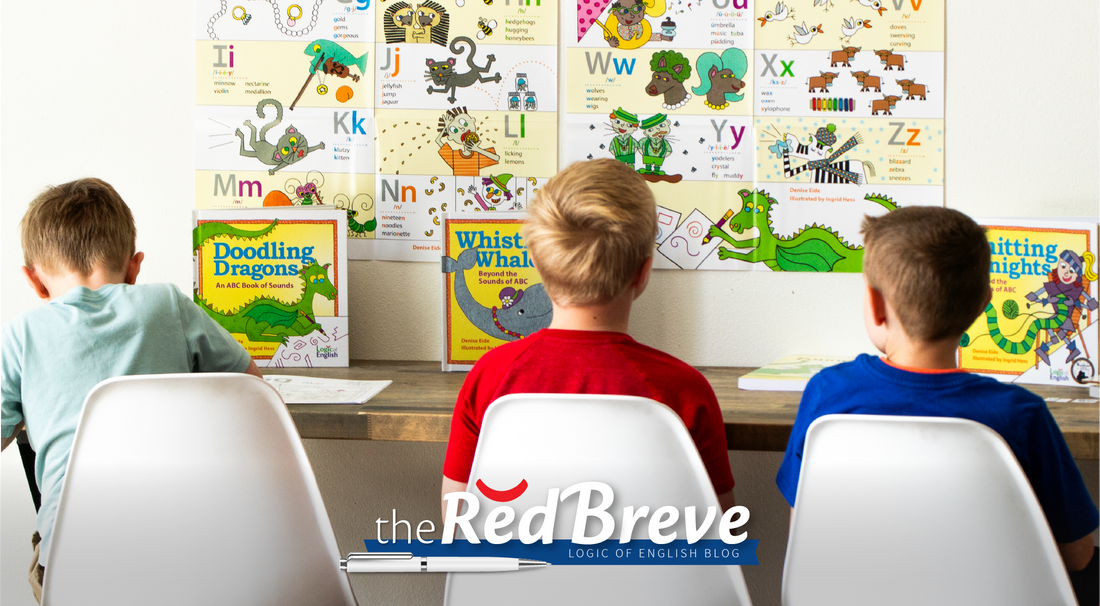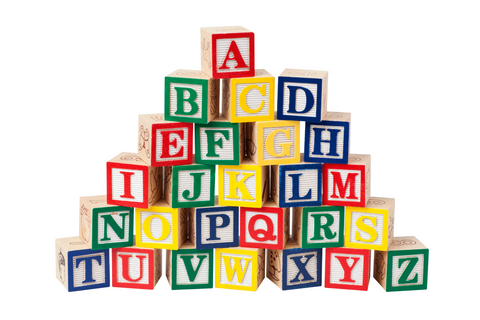Beyond the ABCs: Teaching Phonograms in the Early Years

The Tradition of Teaching the ABCs
“Now I know my ABCs. Next time, won’t you sing with me?”

Did the tune of the ABC song pop into your head when you read those lines? That song is so ingrained in me that simply reading those words will likely have me humming the tune for the next three days. Understandably so, as the alphabet is often among the first and most emphasized lessons we learn in our early learning years. Yes, the ABCs have long been seen as basic building blocks of reading and writing.
When my oldest son was around preschool age, I started buying ABC books and puzzles, we started singing the ABC song, we even started doing some ABC crafts. When we officially started homeschooling at age five, I added ABC wall strips, ABC games, ABC workbooks and we had ABC themed weeks for each letter of the alphabet. At that time, I felt very confident I was introducing the most vital piece he would need to learn before he could learn to read.
My confidence was quickly shaken over the course of his kindergarten year as he began to struggle. For a variety of reasons, he had difficulty connecting the letters to sounds in a way that would allow reading to click. He was seeing a speech therapist at the time who recommended that I look for a multi-sensory, Orton-Gillingham based curriculum. That is when I stumbled upon Logic of English and the concept of phonograms.
Phonograms

I learned that a phonogram is a written representation of sound that can be written with one, two, three or four letters. I learned that phonograms can have more than one sound and that one sound can be represented by multiple phonograms. I learned that knowing 75 basic phonograms, plus 31 spelling rules, will allow me to explain the spelling of 98% of English words! And I learned that giving students an accurate picture of language from the very beginning is more efficient and more effective when teaching them to read.
The more I explored the ins and outs of how and why Logic of English teaches phonograms and spelling rules, the more I understood why my son was struggling, and better yet, how I could help him start connecting the dots. We replaced our ABC work with learning the phonograms using Foundations A, reading Doodling Dragons and listening to the Phonogram Songs. Apples and Ants quickly became his favorite song, and he immediately started impressing family members by telling them all of the sounds for each phonogram. It was so fun to watch him ask other family members, “Did you know A has three sounds?” With some hard work and systematic instruction, his reading skills quickly took off.
A New Path To Literacy

When it came time for his younger brothers to begin school, we actually skipped the ABCs and dove straight into phonemic awareness and learning the basic phonograms. The experience has been night and day, and I am overjoyed to have discovered a way to bypass much of the frustration, confusion and even tears that had resulted from my previous approach. They’re becoming such skilled readers and are enjoying the process of learning to read.
This year, I also have a little one who is four years old and determined to do school like his older brothers. He loves reading his phonogram books, coloring his phonogram coloring pages, listening to his phonogram songs and looking at his phonogram posters! I love that I can once again feel confident that I am giving my child a foundation of vital building blocks that will help him succeed when we start formal instruction.
In case you’re wondering, yes, I eventually still teach my kids the ABC song! In fact, Logic of English builds learning letter names and listening to the ABC songs into Foundations B. While the familiar tune might not be ingrained in them in the same way it was in me, it feels good to know I am instilling a knowledge that goes beyond the ABCs–a knowledge that will help them become the strong readers and spellers I long for them to be.

